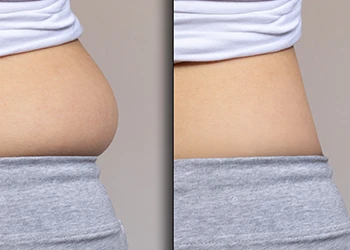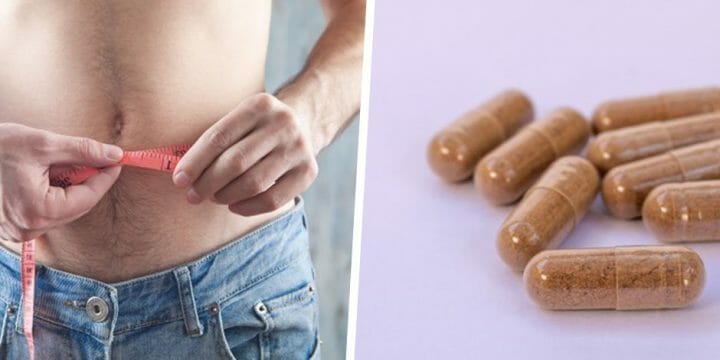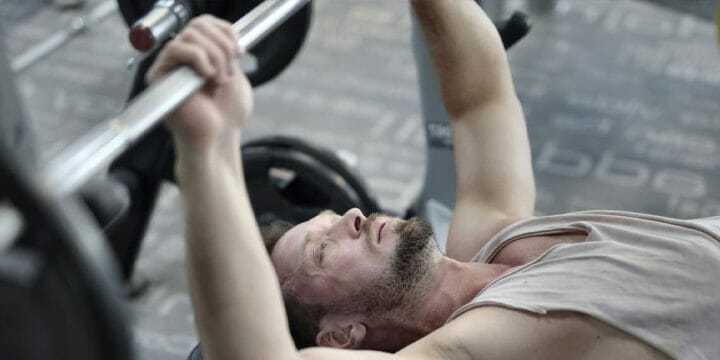One of my clients recently shared how, after losing 107 pounds, she now seems unrecognizable to some of her relatives.
According to them, everything about her had changed, from her face to her body and her attitude.
As a personal trainer with 12 years of experience, I helped many of my clients go through those changes, so I decided to explain what actually happens when someone loses a few pounds.
I teamed up with a bariatric physician and compiled all of my data for this article.
Let’s dive in.
Quick Summary
- Losing weight leads to various physical changes such as altered clothing fit, reduced waist size, and potential loose skin, along with a decrease in body temperature.
- The weight loss process includes two main stages: rapid weight loss, primarily shedding water weight, and slow weight loss, which often involves fat loss and may include a plateau phase.
- A University of Pennsylvania study found that people who lost at least 5% of their body weight slept better and longer after six months.
- Personally, I believe that while weight loss can lead to many positive changes, it's important to approach it with a holistic mindset, focusing on overall health rather than just physical appearance.
What Changes Does the Body Go Through When You Lose Fat?

When you lose fat, your body undergoes several changes as you approach a healthy weight.
In my experience as a personal trainer, when clients lose fat, they often first notice their clothes fitting differently.
Although the changes are usually most noticeable around the waist, for some people, the face also appears chiseled and slimmer than before, according to the University of Toronto [1].
You may also notice loose skin around the belly where there’s a significant amount of fat loss.
The changes are not just physical; scientists also assert that body temperature drops after dropping pounds [2].
Weight loss journeys can surprisingly impact personal relationships, with scenarios ranging from partners feeling threatened by the newfound attention to others being inspired to embark on their own health journeys, highlighting the complex social dynamics that accompany personal health transformations.

Losing Weight Stages

Losing weight comprises two main stages in general; the rapid stage and the slow stage.
Let’s get into details about the two stages.
Rapid Weight Loss
From my training experience, the first stage of weight loss is somewhat radical. As I’ve mentioned, you start noticing changes in your physical appearance, your clothes don’t fit like they used to, and this period lasts for the first 4-6 weeks, according to the Metabolism: Clinical and Experimental [3].
During this radical stage, most of the weight lost is water weight that is bound to glucose in your muscles in the form of glycogen (a form of stored glucose chains).
It also comes from some protein breakdown and fat, but to a lesser extent [4].
When considering weight loss aids, it's crucial to approach dietary supplements with skepticism, as many lack solid evidence for effectiveness and safety, underscoring the importance of consulting healthcare professionals and relying on proven methods of balanced diet and regular exercise.
Related article: How to Lose Weight Fast
Slow Weight Loss
During the slower phase of weight loss, which I've observed in many clients, progress can plateau despite ongoing efforts, requiring patience and persistence.
The silver lining is that most weight lost at the slow stage is pure body fat [4].
The lack of weight change can be accounted to the slowing metabolism as the body adapts to a new diet and fitness routine.
Another reason why it's slow is that folks deviate from overly restrictive diets. As such, you must choose a diet plan that fits your lifestyle in the long term.
Now, as a remedy for the slow second stage, I always advise my clients to opt for high-quality fat burners for women or fat burners for men that we tried and tested ourselves both for effectiveness and safety.
Four Main Benefits

As your body shrinks fat cells to produce energy, you also benefit from a plethora of benefits, including:
Better Sleep
Insomnia and other sleeping difficulties are much more common among obese people than in healthy people. One of the causes of such sleeping problems is sleep apnea. It affects overweight people more and can only be solved by losing weight [5].
In my career, I've seen clients who lose weight often report improved sleep quality, likely due to reduced issues like sleep apnea.
A 2014 study by researchers from the University of Pennsylvania found that overweight people who lose at least 5% of their body weight sleep better and for longer after six months of shedding pounds [6].
Related article: Can You Lose Weight When You Sleep?
“You will find yourself sleeping better, feeling fresh, well-rested, and more alert. Better sleep also enhances your mood,”
- Dr. Harsha Gadre, PT, Orthopedic Physiotherapist, AquaCentric Therapy
Better Mood

Overweight people suffer more from mental health conditions. They tend to have low self-esteem brought about by self-consciousness, according to the Endocrinology and Metabolism Clinics of North America [7]. I've noticed a clear trend in my clients: as they lose weight, their mood often improves, reflecting increased self-esteem and confidence.
Weight loss, achieved through a calorie-controlled diet and strength training, not only enhances physical health but also has a positive impact on mental well-being.
This improvement in mood can further contribute to better sleep quality, creating a beneficial cycle between mental health and rest.
Research shows that high-spirited people drop more pounds than their gloomy counterparts [8].
Better Sex Life
The lack of sexual stamina, hormonal imbalance, and sexual dysfunction are often related to obesity. Problems such as depression, self-consciousness, and mood swings contribute to poor sex life.
From what I've seen, weight loss can significantly improve sexual health and stamina, greatly enhancing my clients' personal lives.
The solution is simple - dropping excess weight. And it has a science backing from a 2012 study published in The Journal of Clinical Endocrinology & Metabolism that found losing weight led to improved sexual function in women [9].
Another study found that overweight men could cure erectile dysfunction issues by moving towards a healthier weight and making lifestyle changes [10].
Reduced Health Risks
Blood pressure rises with body weight. Being obese exposes you to numerous health risks such as heart diseases, diabetes, high blood pressure, stroke, osteoarthritis, and other conditions [11].
In my training experience, clients reducing their weight also see a notable decrease in health risks like heart disease and diabetes.
Where Does It Go?

Our body has a complex process of breaking down fat into carbon dioxide and water.
Water is passed out through sweat, urine, and exhaled air, while carbon dioxide is disposed of primarily through breathing.
Exercising enhances the disposal of this carbon dioxide through breathing and sweating, according to the Sports Medicine [12].
FAQs
What’s the First Thing You Notice When You Start Losing Weight?
There is no clear-cut answer on what you’ll notice first when you start to lose weight. However, for most people, the first place they are most likely to see changes is their waist.
Will Losing Weight Make My Face Look Better?
Losing weight certainly affects face aesthetics.
According to studies, significant weight loss gives the appearance of an older but more attractive person, while mild weight loss gives the appearance of a younger but less attractive person [13].
Does Your Poop Change When Losing Weight?
Yes, your poop changes when losing weight. First, bowel movements are more frequent, and you might be constipated.
And if you’re on a low-carb diet, you might produce runny poops.
References:
- https://www.utoronto.ca/news/losing-weight-can-make-you-more-attractive-experts-say-%E2%80%93-theres-catch
- https://source.wustl.edu/2011/05/restricting-calories-lowers-body-temperature-may-predict-longer-lifespan/
- https://www.ncbi.nlm.nih.gov/pmc/articles/PMC3810417/
- https://www.ncbi.nlm.nih.gov/pmc/articles/PMC5702468/
- https://www.ncbi.nlm.nih.gov/pmc/articles/PMC5836788/
- https://www.endocrine.org/news-and-advocacy/news-room/2014/sleep-mood-improves-after-substantial-weight-loss
- https://www.ncbi.nlm.nih.gov/pmc/articles/PMC6052856/
- https://www.webmd.com/depression/features/depression-and-weight-connection
- https://academic.oup.com/jcem/article/97/12/4540/2536517
- https://www.ncbi.nlm.nih.gov/pmc/articles/PMC4291878/
- https://www.ahajournals.org/doi/10.1161/CIR.0000000000000973
- https://www.ncbi.nlm.nih.gov/pmc/articles/PMC5371639/
- https://www.ncbi.nlm.nih.gov/pmc/articles/PMC4579167/
About The Author
You May Also Like






